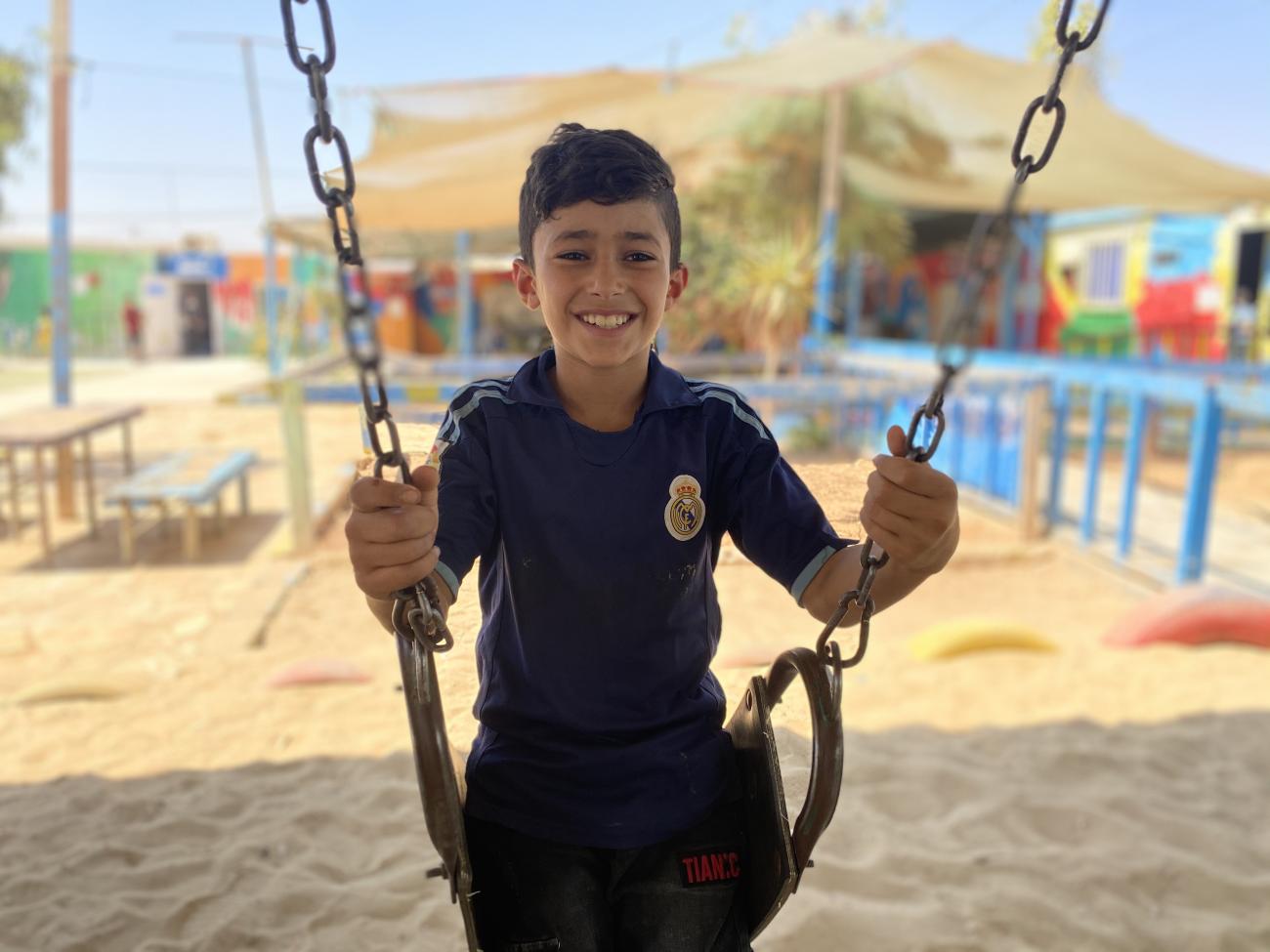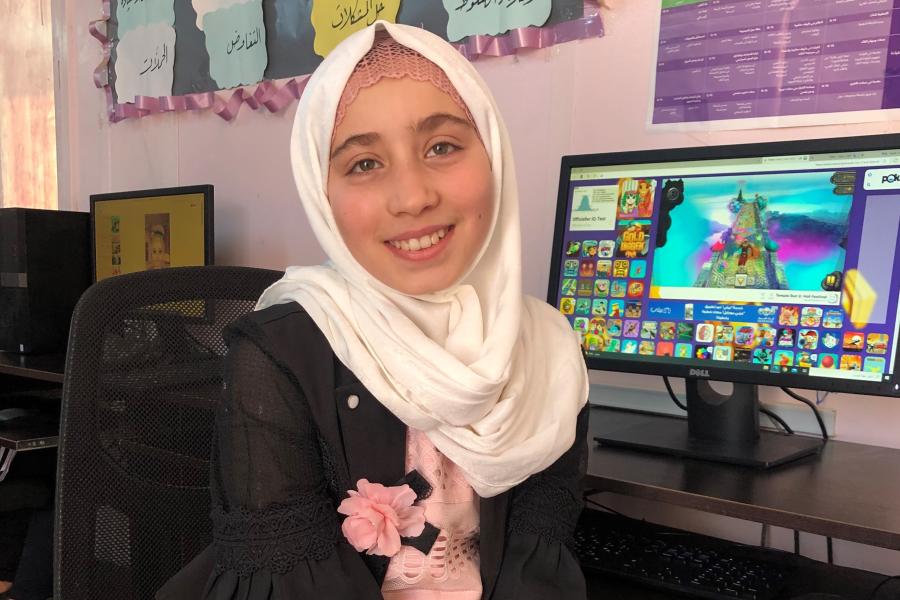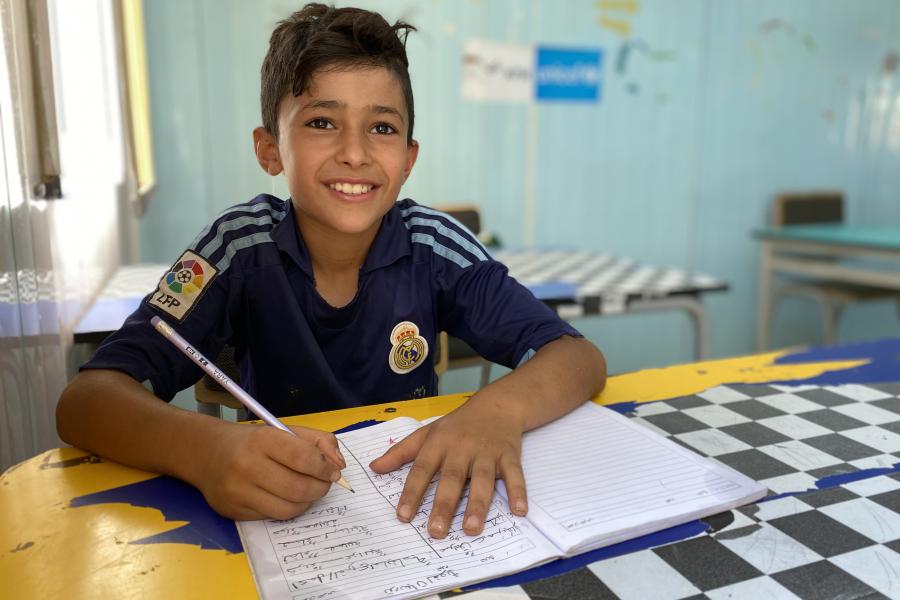Makani centres offer children hope: A safe space to learn and play

Makani centres offer a space to reimagining a better future.
Many Syrian refugee children in Jordan have found respite at UNICEF supported Makani centres.
“I first enrolled at Makani centre when I was 8 years old,” says Eman, 12.
Eman and her family fled the violence in their hometown Dara’a, and sought shelter at Za’atari refugee camp in Jordan. To support these vulnerable children, UNICEF with the support of KfW is providing integrated package of services through Makani programme to children in Za’atri camp like Eman.
“I learned Arabic, English and math,” says Eman. “I also acquired computer skills and now I can surf the net.”
At Makani centres, children of all ages participate in a number of informal education activities. Children acquire literacy, numeracy and computer skills, which help them in their formal education.
“I love Makani centre because I am able to learn better,” giggles Eman. “Schools are usually over-crowded, and I cannot follow my teachers easily.”

Zain, a 10-year old boy remembers nothing about his hometown in Syria, except for the stories he hears from his parents.
With his family of 8, Zain fled the Syria war. “I left when I was only 2 years old,” says Zain with a grin. “Here, I feel safe and I enjoy learning and playing with my friends.”
Zain enjoys Makani centres to the fullest. Yet, during the height of the COVID-19 pandemic, these centres were closed.
“I was bored stuck at home. I had nothing to do,” says Zain. “I missed playing football with my best friend Mohammad.”
“When Makani centre opened, I was so excited to meet my teacher Abeer,” says Zain. “She is the best teacher in the world.”
Zain’s favourite subjects are Arabic and math. He enjoys studying and acquiring new skills.
Makani centres offer a space to reimagining a better future.
At Makani centres, children like Eman and Zain acquire not only English, Arabic, math, life skills and computer, but they also have the opportunity to play and reimagine their future.
Both Eman and Zain hope to continue to learn to secure a better living, away from this camp.
“I want to become a pharmacist like my aunt,” says Eman. “This is why I am trying hard to learn here at Makani centre.”
Zain also has a dream. “I want to become a pilot to travel to Germany,” says Zain with a smile. “My aunt Nujoud who lives in Germany tells me how beautiful life is in that country.”
Thanks to KfW, these children have a safe space where they can not only learn, but also play and enjoy their childhood away from violence and abuse. At the centres, children also receive psychosocial support services to better cope with their harsh living conditions.
“These children have suffered a lot,” says Abeer, a Makani centre facilitator. “Through arts and play, we are able to bring back a sense of normality to these children’s lives.”
By Monique Awad and AbdelMajid El-Noaimi



